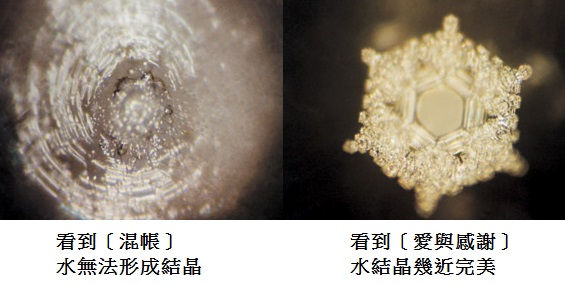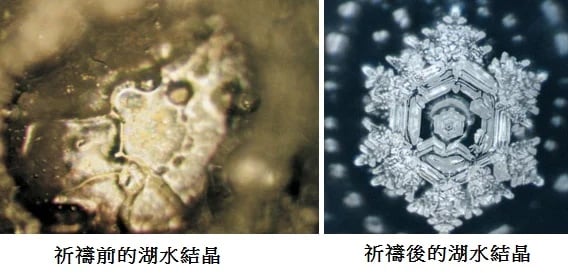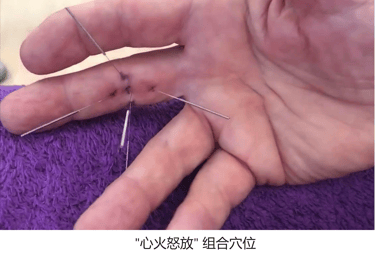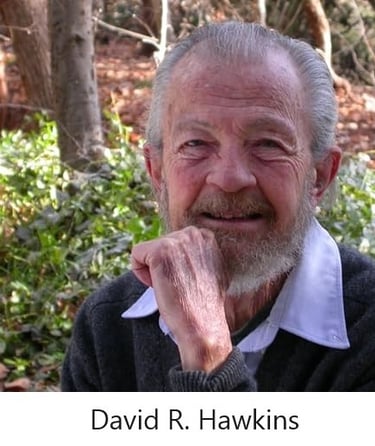The Miraculous Healing is Inseparable from Immense Love
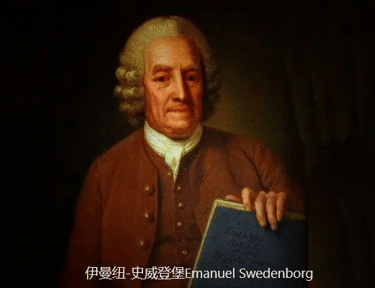

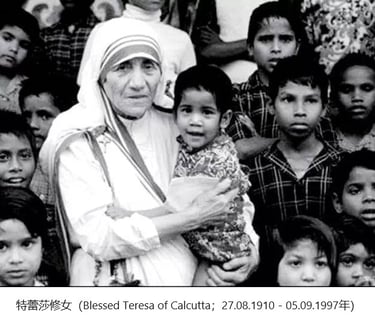

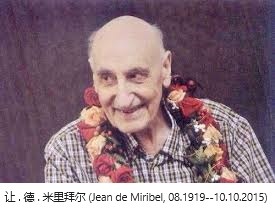

Stephen William Hawking (January 8, 1942 - March 14, 2018) was a renowned physicist whose three main contributions to physics - the singularity theorem, Hawking radiation, and the no-boundary universe model - have greatly influenced human understanding of the universe and time. His popular science book, 《A Brief History of Time》, sold millions of copies worldwide. This scientific genius was admitted to Oxford University at the age of 17, graduated with honors at 20, and then joined Cambridge University to pursue a doctorate. At 21, he was diagnosed with Lou Gehrig's disease (amyotrophic lateral sclerosis or ALS), with a life expectancy of only two to three years according to doctors. Upon hearing the news, he immediately decided to break up with his girlfriend, Jane Beryl Wilde (born March 29, 1944). However, Jane, instead of leaving him, proposed marriage. Hawking told her, "I only have two years to live." Jane hugged him and replied, "Two years is two years." When Hawking's father warned Jane that his battle against the disease was a lost cause, Jane simply responded, "But I love him and he loves me too." Thus, Jane and Hawking got married and had three children. Despite the progressive deterioration of his body, Hawking's mind was racing. Jane, while raising their three children, took care of her entirely dependent husband, abandoning her own dream of a PhD in Spanish literature. The love she gave is unimaginable. Hawking lived in a happy, loving family, continuing to work until the age of 76. For medicine, this remains a miracle, a miracle created by Jane and her love! Jane, one of the most admirable and beautiful women in the eyes of men, creator of this medical miracle.
Similar stories are found in both ancient and modern times, and some are even more incredible:
Anita is a woman of Indian origin, born in Singapore and raised in Hong Kong, having received a British education. Her intercultural background has enabled her to master English, Cantonese, and several Indian dialects. She worked in the corporate world for many years. In 2002, she was diagnosed with lymphoma. She decided to leave her job to focus on her battle against cancer. Over the next four years, she studied various books on cancer, traveled to India and China, seeking treatments from Buddhist monks and Indian yoga masters. She tried faith healing, Indian Ayurveda, traditional Chinese medicine, and Western natural medicines, but her condition continued to deteriorate. One day in 2006, she fell into a coma due to organ failure, and the doctors declared her to be in the terminal stage.
During resuscitation attempts, she had an experience in a "timeless world, where she felt united with the entire universe, enveloped in unconditional love and without any pain, and she met her deceased father." This indescribable love made all fear of life disappear. She chose to return to life, and when her soul returned to her body and she opened her eyes, her advanced cancer had miraculously disappeared in nine days, as confirmed by medical examinations. She said, "I understood why I had cancer, I understood everything that had happened in my life up until I was dying in the hospital. I also understood that we are beings of incredible and formidable strength, and with this knowledge, if I returned to my body, my cancer would heal. That's when my father told me, 'Since you know the truth, go back and live without fear.' " So, why does love have such healing power and miraculous effects?
What is love?
Love is an emotion that everyone experiences, but it is very difficult to express. Humanity indeed lacks words to describe "love." Love is associated with concepts such as kindness, goodness, romantic love, maternal love, paternal love, friendship, and so on. The Chinese often say that where there is love, there is hate. The Swedish scientist Emanuel Swedenborg (January 29, 1688 - March 29, 1772) is the only one who was allowed to freely enter and exit the spiritual world and the human world for 27 years. He wrote a dozen books based on his experiences, many of which talk about love, such as 《Divine Love and Wisdom》, 《Conjugial Love》, and 《Charity》. Enrique Barrios wrote a trilogy called 《Ami》, which centers on the theme of love. After reading them, one realizes that they are not just simple tales but works mainly intended for disoriented earthlings. According to their theses, love is the fundamental law of the universe. Love is life; love is God. The universe and the Earth were born out of love, and all forms of life were also born out of love. Goodness is the expression of love; therefore, goodness is also a fundamental law of the universe. Earth, as a planet with wars and massacres, is one of the lowest in terms of civilization. Its future, whether it evolves into a higher civilization or sinks into destruction, will depend on whether humanity chooses to live in love or in hate. If we choose hate, Earth will certainly be destroyed.
Romantic love refers to the love between a man and a woman. At the beginning of love, there are many positive changes in the bodies of both people, but these changes gradually stabilize. If someone, because of love, or love for their family, group, people, or country, comes to hate other individuals, groups, peoples, or countries, what 《Ami》 calls this love "Preferential." On highly civilized planets, there is no hate, no borders, no money, somewhat like in paradise. In paradise, levels are determined by the amount of love each spirit possesses. Those with a lot of love are at the top, and those with little are at the bottom. The law of the universe requires us not to love preferentially but to have universal love, also called charity. That is, to love all humanity and the entire universe. This is also the secret to achieving bodily health. Many scientific studies show that the changes in the bodies of those who give love and those who receive it are very similar; all secrete a large amount of substances beneficial to the body.
Is Love Selfish?
Selfishness is an innate characteristic of human beings, a natural protective reaction controlled by our genes, especially when it comes to love. Genes are inherent, inherited from birth. However, human behaviors and emotions are also influenced by another entity: memes, or cultural genes. These memes are similar to the collective unconscious in psychology and are acquired through life experiences and learning. Memes and genes form a Yin and Yang relationship, both opposing and united. Thus, human behavior is ultimately determined by the result of the struggle between memes and genes. Due to differences in learning and life experiences, emotions and behaviors vary from one person to another, as do ways of managing love.
Love Without Borders
Traditional Chinese medicine has been used and transmitted for thousands of years because its principles, methods, and remedies respect the laws of the universe, namely love without borders. It is intended for all patients, regardless of race or nationality. In the preface of the 《Treatise on Febrile Diseases》, it is written: "Alas! The world is confused, no one can awaken, life is not cherished, it is taken lightly. Where is the glory and power? Can we not love and understand others, love and understand ourselves, and avoid disasters and misfortunes? Humanity wanders like lost souls." The sage of medicine, Zhang Zhongjing, urged everyone to learn medicine in order to love and understand others, love and understand themselves, and thus avoid misfortunes. Most of the remedies in his book use ingredients that the majority of people can afford, such as kitchen spices like green onions, ginger, red dates, lily, cinnamon, etc. When he saw many homeless people in winter with frostbitten ears, he set up a large pot outside and prepared a dish for free by mixing lamb meat, chili, and other ingredients with dough to feed them. This delicious dish was called "Soup to Soothe Cold Ears," and that's how dumplings were created.
Sun Simiao, in 《The Great Sincerity of the Great Physician》, writes: "Any great physician, when treating an illness, must first calm their mind and fix their will, be without desire or pursuit of profit, and develop a great heart of compassion, committing to save all suffering beings. If someone comes seeking help, they must not inquire about their wealth, poverty, social status, age, beauty, relationships, or intelligence. They must treat everyone equally, as if they were their close relatives... Since ancient times, great sages have often risked their lives to save others. Although one might say there is a difference between animals and humans, all cherish their lives. Killing to save a life is far from true healing." This passage is almost like an oath for traditional Chinese physicians. It also emphasizes that animals should not be killed to heal humans, as both animals and humans are precious lives. It is even less acceptable to kill one person to save another. Such acts would shorten the life of the one who commits them. These teachings remind physicians to always save lives with love.
During the Jin and Yuan dynasties, Zhu Danxi had a significant experience while studying medicine with his master Luo Zhiti. One day, a student came running to tell Luo Zhiti: "Outside, there is an unconscious monk. He is dressed in rags; he surely has no money. What should we do?" Dr. Luo replied: "Bring him in immediately, why ask questions?" Dr. Luo then asked Zhu Danxi to examine the patient and propose a treatment. After listening to Zhu Danxi, Dr. Luo gave him money and said: "Go buy beef and cook a very nourishing soup for the patient." After a few days of care, the monk completely recovered. They learned that this monk came from Sichuan, had been traveling for a long time, missed his home, and had no money to return. He had fallen into deep anxiety, suffering from hunger and cold. Dr. Luo gave him money and said: "Go back to see your mother." The monk, with tears in his eyes, knelt in gratitude. Zhu Danxi not only learned medical skills from this experience but also the immense virtue of his master. This is the spirit of traditional Chinese medicine, passed down for thousands of years, as Sun Simiao said: "If someone comes seeking help, they must not inquire about their wealth, poverty, social status, age, beauty, relationships, or intelligence. They must treat everyone equally."
Mother Teresa (Blessed Teresa of Calcutta, August 27, 1910 - September 5, 1997), Nobel Peace Prize laureate in 1979, is an iconic figure of charity worldwide. She primarily served the poor of Calcutta, India. Her entire life was devoted to eliminating poverty, spreading her love in a foreign country.
Jean de Miribel (August 1919 - October 10, 2015), recipient of the Legion of Honour, history professor, and descendant of a noble French family, gave up a comfortable life to dedicate the second half of his life to China. He taught at Xi'an International Studies University, fighting until the end for the education of the Chinese people. He used his salary to buy teaching materials in France, convinced his relatives and friends in France to use their salaries to help many Chinese students study in France, treating Chinese students as his own children. He also used his pension to help those in need, including disabled individuals and students from poor mountainous regions, while leading a very simple life. His favorite phrase was: "Just to see your smile." He was always optimistic, often joking. At 95, he had no serious illness. One of the authors of this article, Zhu Weimin, was able to come to France to study and work thanks to Mr. Jean's help. Almost 30 years have passed since his arrival in France.
Zhu Weimin: "Every time I meet Jean in a dream, I feel surrounded by immense love, which makes me extremely happy. I always wake up complaining that I woke up too early. Jean certainly lives now in the highest spheres of paradise. According to the rules of paradise, spirits from lower levels cannot access the higher levels, but spirits from higher levels can descend to visit and walk in the lower levels. Knowing Jean, he must often take a walk in the lower levels. When he lived in Xi'an, every time we went out together, he always gave money to beggars and helped those in need. He loved talking with the most ordinary people. So, he surely has already met my parents on the street. Jean was a historian and published a book titled 《Local Officials and the Civil Service System under the Ming Dynasty》 during his stay in Xi'an. My father also loved history, and they must now have the time to discuss it."
There are still many people like them who live and work for the happiness of all humanity. Their boundless love has not only warmed the hearts of the people in these lands but also healed thousands of people from their ailments. Some of them have even sacrificed their lives for the happiness of people in foreign lands, such as:
The Canadian surgeon Norman Bethune (March 4, 1890 - November 12, 1939), who died of sepsis caused by an infection after being wounded by enemy bombing while operating on the wounded of the Chinese Army,
The American flight instructor Robert McCawley Short (1904 - February 22, 1932), who shot down an enemy plane but was killed by six other enemy planes during a fight against the Japanese. The Short Memorial is located in Jiangbin Park in Suzhou. He was the first American aviator to die in China, but more than 2,000 American pilots sacrificed their lives during the Chinese War of Resistance against Japan.
These great men and women, whose love knows no boundaries, are guides for humanity's evolution toward an advanced civilization and role models for all the inhabitants of Earth.
Family Love Produces Many Renowned Doctors
Love has infinite power. In the history of China, many famous doctors emerged after losing the loved ones who raised them. Their immense grief, born from the love they had for their relatives, transformed into a force that drove them to study medicine with more determination and energy than others. For example, Zhang Zhongjing lived during a time of frequent wars and epidemics. As the proverb says, "After a great war, there are always disasters." At the end of the Eastern Han dynasty, incessant wars led to recurring epidemics. During the Jian'an period, there were up to five major epidemics, causing the death of many residents and turning some cities into ghost towns. Typhoid fever was particularly deadly, decimating entire families. In Zhang Zhongjing's family, more than 200 people perished in less than ten years after 196 AD, with two-thirds dying from typhoid fever. The love for his relatives inspired Zhang to study medicine diligently, resulting in the writing of the famous treatise 《Shang Han Za Bing Lun》 (Treatise on Cold Damage and Miscellaneous Diseases). This book established the principle of "differentiation and treatment," which became the foundation of clinical practice in traditional Chinese medicine. Zhang Zhongjing is revered as the "Saint of Medicine" by later generations.
Another example is Li Dongyuan, founder of the Spleen and Stomach School of traditional Chinese medicine, who began studying medicine after his mother's death. Zhu Danxi, one of the four great doctors of the Jin and Yuan dynasties, lost his father at the age of 14. Miao Xiyong, a famous doctor of the Ming dynasty, was often ill in his childhood and lost his father at 13. At 17, he contracted malaria and, after failing to be cured by many doctors, he healed himself by studying the 《Huangdi Neijing》 (Yellow Emperor's Inner Classic). He then became a renowned doctor. Wang Mengying of the Qing dynasty lost his father at 16 and dedicated himself to the study of traditional Chinese medicine. After two years of self-study, he saved his employer with dried ginger, becoming a famous doctor. There are many similar examples, demonstrating that deep familial love can foster extraordinary medical skills. Let's now consider the story of the pediatrician Qian Yi from the Song dynasty:
Qian Yi lost his mother at birth and, at the age of three, was abandoned by his father, who left him alone at home. Fortunately, neighbors took him to his aunt and uncle, who raised him. This experience made Qian Yi particularly sensitive to the cries of children. Whenever he heard a child cry, he suffered greatly. This sensitivity caught the attention of his uncle, a rural doctor, who decided to train him in pediatrics. After his uncle and aunt passed away, Qian Yi arranged his sister’s marriage and then embarked on a long journey to find his father, who had fled years before. He eventually found his father on a small island in Shandong. Recognizing immediately the man he had often seen in dreams, his father burst into tears and asked, "Why did you come looking for me after all I did to you?" Qian Yi simply replied, "Because you are my father." These simple, heartfelt words echo Jane's words to Hawking: "Two years, that's two years." Such expressions of pure and simple love touch the heart and work miracles.
Qian Yi brought his father back home, where the whole village came to see them, moved to tears. He later took care of his father until his father's death. Despite never receiving his parents' love, Qian Yi harbored no hatred and devoted all his love to his father, who had abandoned him, and to sick children. This deep love seemed to grant him almost divine medical skills. From a simple rural doctor, he was called to the imperial court where he cured diseases that the most renowned doctors could not, especially those of princesses and princes. Emperor Song Shenzong appointed him Imperial Medical Supervisor. Qian Yi left behind the 《Xiao Er Zhi Zheng Yao Jue》 (Essential Principles for the Treatment of Children’s Diseases), a foundational work in Chinese pediatrics, written 350 years before the first Western pediatric treatise.
Divine love is omnipotent
As mentioned earlier, love is life, love is God. All forms of life on Earth are created by God, an idea now widely accepted by the scientific community. Therefore, it is not surprising that God is omnipotent when it comes to human health. This has been proven repeatedly in places like Lourdes in France and Fátima in Portugal. While science attempts to explain the nature of life by studying its components, even the most advanced scientists, with all the necessary materials for life, cannot create a complex human being, let alone a simple plant. Thus, we believe in science, but we must not make it an object of blind faith. We must cherish love coming from all sides, for this love is divine. Another proof of divine love is light.
Sunlight is an essential component of life, and it is part of the love that God bestows upon us, bringing wisdom, warmth, health, and happiness. The invariance of the speed of light is a recognized phenomenon in modern physics. What does it signify? If you travel in a plane towards the sun, you might think that the speed of light you measure should be the speed of sunlight plus the speed of the plane. Similarly, if you move away from the sun, the measured speed of light should be the speed of sunlight minus the speed of the plane, right? However, in reality, regardless of your direction of travel, the measured speed of light remains the same. This defies explanations by scientists. There is only one possibility: this phenomenon surpasses current human understanding. Perhaps only advanced civilizations will one day unravel this mystery.
Imagine for a moment that if your plane were flying at the speed of light away from the sun, solar light could no longer reach you, and you would freeze. Yet, in the universe, there are many highly civilized planets where spacecraft reach and exceed the speed of light. However, their inhabitants still benefit from light and warmth just like us, don't they? So, who designed such a plan with such precision and foresight? What principle is behind this? This absolutely cannot be a product of chance.
Shan Qin: "In traditional Chinese medicine, love is present everywhere. From the moment the patient enters the clinic, the Chinese doctor looks at them with deep affection; when questioning the patient, they listen with love; when the Chinese doctor takes the pulse with warm hands, they not only feel the beats of your heart but resonate with the joys and sorrows of your life. Such a humane treatment, experiencing the warmth and coldness of the world, is a great manifestation of boundless love."
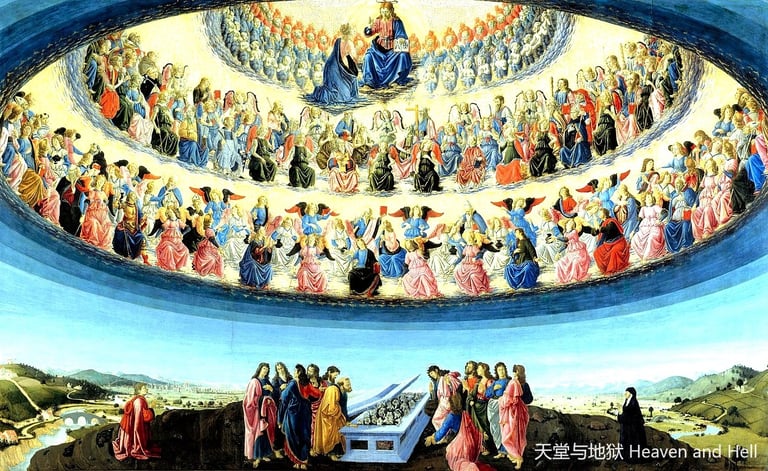

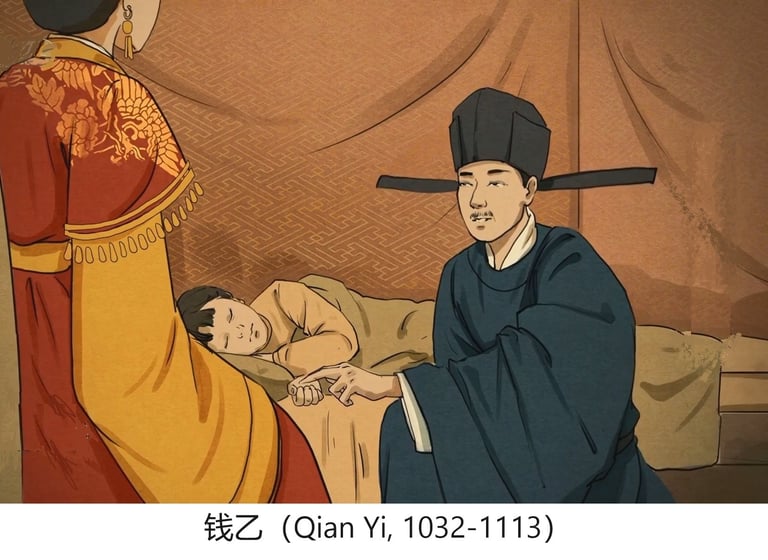

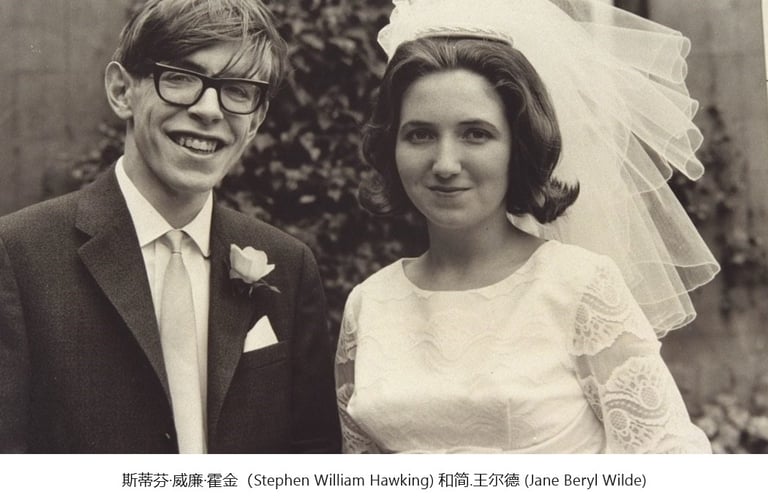

Conclusion
With the development of mobile phones and the Internet, many people have become addicted to their phones, spending each day watching entertainment videos and acquiring fragmented knowledge, which makes them believe they have become experts in all fields. Communication between people has significantly decreased. When we finally gather together, everyone holds their phone and constantly manipulates it. Arrogance, stubbornness, excessive confidence, and refusal to believe in anything have become characteristics of many modern people. I hope everyone can pay more attention to their eyes, neck, and body to avoid compromising their health and future, which will allow us to have the necessary conditions to love others and love the universe.
Due to the low level of civilization of humans on Earth, filled with violence, wars, poverty, deceit, epidemics, and other negative aspects, natural sciences and technology cannot develop to higher levels. Because in a society lacking compassion, in a world that does not take love as a guide for life, the more advanced technology becomes, the closer humanity is to destruction. Therefore, there is certainly an invisible force preventing the technological progress of humans. Humans cannot understand the secret of water and the secret of light; they can only observe their phenomena, which is evidence. I hope everyone will understand this simple principle. If hatred and conflicts between individuals, regions, and countries cannot be resolved and continue indefinitely, there is a risk of nuclear war breaking out. The study of health and everything else will have no meaning. Because in any case, the Earth will be destroyed by weapons and humanity will be annihilated. If the skin does not exist, how can hair attach to it?
Therefore, in all things, think of your descendants, your family, others, and other countries. Act according to the laws of the universe, understand the true meaning of life. Remember that life is eternal; the short life on Earth is just an entrance exam. If you write inappropriately or give up your answer, it will bring you eternal regrets and suffering. Moreover, there are more advanced extraterrestrials than us who are watching over us, like exam invigilators.
参考文献 :
① 伊曼纽‧史威登堡 (Emanuel Swedeborg)中文网,https://builder.hostinger.com/AR0eB14L5OUwGWQZ?amplitudeLocation=websites
② 恩里克·巴里奥斯(Enrique Barrios)的《阿米》之一《星星的孩子》,https://fr.slideshare.net/slideshow/01-52825268/52825268
《阿米》之二《宇宙之心》,https://fr.slideshare.net/slideshow/02-chinese/52825267
《阿米》之三《爱的文明》,http://www.fosss.net/Book/Ami/AiDeWenMing.html
③ 理查德·道金斯(Richard Dawkins,全名Clinton Richard Dawkins): 《自私的基因》(1976年)The Selfish Gene,
https://www.99csw.com/book/1172/index.htm
④ 张仲景《伤寒杂病论 . 序》,https://www.zysj.com.cn/lilunshuji/shanghanzabinglun512/index.html
⑤ 孙思邈 《大医精诚》,http://www.a-hospital.com/w/%E5%A4%A7%E5%8C%BB%E7%B2%BE%E8%AF%9A
⑥ 抗日战争纪念网,https://www.krzzjn.com/show-524-80403.html
⑦ 大卫·霍金斯:一个人的意识能级水平,决定了这个人的生命成就和人生丰富程度,https://www.sohu.com/a/500015609_434457
⑧ 水能聽音樂、讀文字還能記憶訊息?日本江本勝博士:生命的答案,水知道。https://www.booklife.com.tw/baike-detail/1/46
2024年6月22日
You might also be interested in the following article:
The Terrifying Optical Experiences and Natural Healing
Brief discussion on the philosophy of traditional Chinese medicine
Traditional Chinese Medicine and 《The Art of War of Sun Zi》
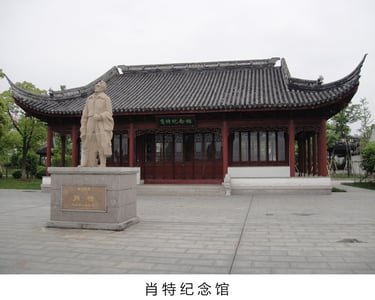

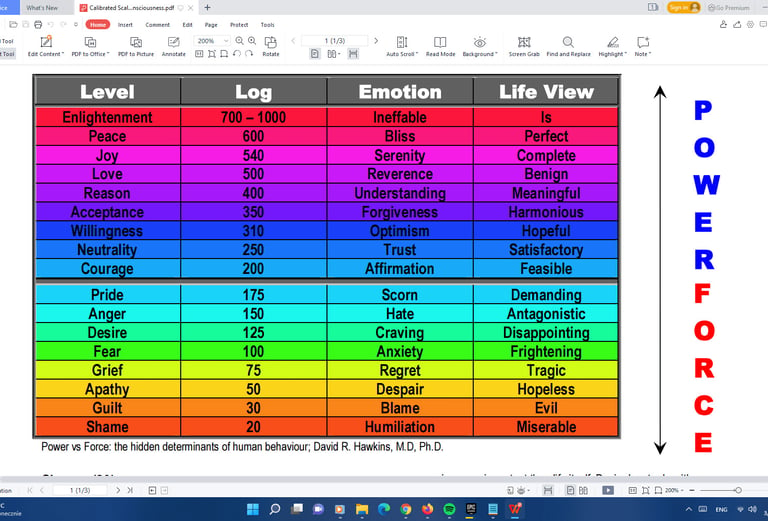

Traditional Chinese Medicine: Treatment Most in Line with the Laws of the Universe
Taoism regards the human body as a microcosm. Regardless of how the ancients discovered this theory, it is indeed very accurate and of great significance. In his work "Heaven and Hell," Swedenborg describes in detail the paradise he observed: an immense spiritual human form. There are verdant mountains, clear rivers, palaces, and pavilions. Spirits live in monogamy, some remaining married to their earthly partners while others remarry in the afterlife. Communities are distributed in different parts of the spiritual human body. For example, some communities reside in the region of the liver, others in the spleen, thighs, or calves, etc. The principle of life in the spiritual world can be summed up in one word: Love. Or: Kindness. There is no deception because everyone's thoughts are directly perceived by others. Relationships between different communities and spirits are based on love, mutual respect, and mutual assistance, in a rigorous organization without violence.
The mode of operation of the spiritual world is exactly the same as that of the human body. In the body, there is also organization and strict rules. The operating principle of the body, just like that of the spiritual world, is based on love and mutual assistance, without violence. For example, when the feet are dirty, the hands clean them without ever complaining. When pathogenic bacteria invade the throat, the lungs, and other organs cooperate to expel them by sneezing. If the bacteria are more virulent, numerous, or deeply entrenched, coughing expels them, or even spitting. As a last resort, white blood cells and lymphocytes, among others, fight together tirelessly. No organ will ever say, "Bacteria are attacking your throat, it's none of my concern," or "Bacteria are invading your lungs, but I'm in the liver and I won't get involved in that." Each organ and tissue works together devotedly, in an orderly and incessant manner, reflecting the harmony of paradise. This perfectly illustrates the concept of "the unity of man and heaven" mentioned in the 《Huangdi Neijing》. Yet, many people fail to realize this, thus creating a dichotomy between the inside and the outside: the inside resembling paradise, while the outside is a battlefield. If everyone treated their external relationships the same way as the internal relationships of their body, the world would then become a paradise.
Not only is Traditional Chinese Medicine (TCM) in accordance with the laws of the universe, but it adheres very closely to them in its treatments. Swedenborg writes in 《Divine Love and Divine Wisdom. Love is the life of man》: "To understand that love is the life of man, one can think of the warmth of the sun. It is known that this warmth is, so to speak, the common life of all terrestrial plants. In spring, as the temperature warms, plants emerge from the ground, adorn themselves with leaves, bloom, and bear fruit, thus living in a certain way. But when the warmth decreases, as in autumn and winter, these plants gradually lose their signs of life, wither, and die. The same goes for love in man, as warmth and love correspond mutually. Therefore, love is also warmth." Heat is energy, love, and life.
The heart of TCM rests on the eight principles of syndrome differentiation, namely yin-yang, exterior-interior, cold-heat, and deficiency-excess. Among these, yin-yang and cold-heat are the most essential and must not be confused. If an error is made, the treatment will be ineffective, potentially worsening the patient's condition or causing death. In scientific terms, as the great scientist Nikola Tesla said: "If you want to find the secrets of the universe, think in terms of energy, frequency, and vibration." Many similar medicines are limited in the diseases they can treat because they do not consider heat or energy. They simply target and destroy without regard for cold or heat. Without warmth, there is no life.
Sun Yuxia: "Love is one of the most powerful emotions in the animal kingdom, not just among humans. When you feel love, you experience happiness and a benevolent warmth spreads throughout your body. This influx of positive energy has a significant impact on physical and mental health, constituting a powerful spiritual and psychological treatment. TCM considers qi to belong to yang and its functions include warming, propelling, protecting, and defending. According to TCM, the benevolent warmth that invades the body under the influence of love has beneficial effects on qi and promotes blood circulation, thereby improving the immune system and increasing disease resistance. For centuries, TCM has emphasized the importance of emotions in illness and treatment. Ancient Chinese physicians placed great importance on the psychological and emotional state of patients, offering compassion and encouragement, while urging the patient's loved ones to show affection and care, significantly enhancing treatment effectiveness. During my decades of clinical practice, I have integrated these valuable experiences, paying special attention to patients' emotions and positive energy, in addition to acupuncture and herbal treatments. This approach has yielded remarkable results, making me realize the importance of love in the healing process. Love plays an active role in healing and is also essential for creating a harmonious society. Thus, I hope that everyone lives in love and warmth, that all are healthy and happy, and that our world becomes increasingly beautiful through love!"
Scientific Research on Love
I. Definition of Nutrition by WHO
In 2002, the World Health Organization (WHO) defined nutrition as encompassing four essential elements:
1. Air; 2. Water; 3. Food; 4. Love
Among these, only food is bought with money, water is generally free, while air and love cannot be purchased. However, these elements constitute the most important nutrients. Therefore, one should not think that treating serious illnesses requires spending a lot of money. Often, the opposite is true. Here, love refers not only to romantic love but includes all forms of love. Universal love and charity are even more valuable than other forms of love. If a person lacks love, whether giving or receiving, they may suffer from "emotional malnutrition," which according to Western medicine, can manifest in various serious illnesses.
II. David R. Hawkins
David R. Hawkins (1927-2012), psychiatrist, physician, author, and American spiritual teacher, scientifically proved the existence of the laws of "cause and effect" and "karmic retribution." According to him, different levels of human consciousness correspond to different frequencies of bodily energy. The more positive the consciousness, the higher the energetic frequency; conversely, the more negative the consciousness, the lower the energetic frequency. Over the last thirty years of his life, Hawkins worked to bridge the seemingly distinct realms of science and spirituality. His research shows that the vibrational frequency of the human body fluctuates based on mental state. Any state that lowers the vibrational frequency below 200 weakens the body, while frequencies between 200 and 1000 strengthen it. The frequency of love is 500, significantly higher than 200, and therefore has therapeutic effects.
Hawkins identifies two main obstacles to spiritual growth: level 200 and level 500. The first obstacle is level 200: courage. Moving from below 200 to above 200 is a major energy leap that can transform a life. The second obstacle is level 500: love. This love is unconditional. Hawkins considers crossing this threshold as a profound and sacred energy leap, characterized by personal spiritual awakening and the promotion of awakening in others. According to him, the difficulty in reaching this level stems from many people being addicted to material pleasures and neglecting spirituality, God, and spiritual elevation.
III. Effects of Love on the Body
Other scientific research also shows that love, in addition to providing mental well-being, is beneficial for the body. When giving or receiving love, especially in the context of romantic love, the body secretes various hormones that are beneficial to health.
Dopamine
Dopamine is a neurotransmitter that, when active, gives us a feeling of romantic happiness. It transmits the sensation of pleasure and excitement, often referred to as the "happiness hormone." Dopamine causes the contraction of blood vessels, increases blood pressure, and promotes blood supply to vital organs, including the brain, which boosts energy and allows for the repair of diseased organs. In hospital emergency departments, dopamine is an essential medication for rescuing patients in shock.
Adrenaline
Adrenaline is primarily secreted by the adrenal glands in response to a dangerous situation. This hormone energizes the body and adjusts metabolism to prepare for fight or flight responses. Adrenaline is also used as an emergency medication to save patients in systemic failure. It maximizes the body's potential and vigor by acting primarily on the heart, increasing heart rate, strengthening the contraction of the heart muscle, and enhancing cardiac output. In stressful situations (such as fear, anger, hypotension, general anesthesia, asphyxia, hypothermia, hyperthermia, intense exercise, hypoglycemia, trauma, blood loss, pain), the body also secretes a large amount of adrenaline, sometimes hundreds of times more than normal, which increases excitability of the sympathetic nervous system, accelerates breathing and heart rate, and speeds up blood circulation while increasing nutrients in the blood.
Serotonin
Serotonin, also known as 5-hydroxytryptamine, is primarily metabolized from tryptophan in the intestine. Like dopamine, serotonin induces pleasant emotions and is even used in the treatment of depression. It is also known as the "happiness hormone" and plays a role in emotions, sleep, learning, memory, and digestion. In fact, scientists believe that serotonin affects almost all systems of the body. As a result, it is not surprising to find many supplements on the market claiming to increase serotonin levels. Years of research have shown that serotonin participates in intestinal movements, nutrient secretion, and absorption.
IV. Water
The human body is composed of 70% water. Water outside the body can discern between good and evil, love and hate through words and music. What about water inside the body? Dr. Masaru Emoto from Japan conducted experiments with water crystals that showed how words and intentions affect the structure of water crystals. For example, water crystals exposed to labels like "I love you, thank you" formed beautiful crystalline structures, while those exposed to labels like "I hate you, I will kill you" formed ugly structures. This phenomenon, seemingly inexplicable by conventional science, suggests that water, like the sun, belongs to the realm of divinity. The sun and water, two essential components of life, belong to divinity. If we do not live according to divine love and universal laws, can we escape their punishment?
Yang Yibin: "In my clinical practice, I often encounter patients with depression who suffer not only from sadness, emptiness, and despair but also from widespread fatigue and bodily pains. They lose all interest and pleasure in things, and some even exhibit suicidal tendencies. In such cases, we must first guide patients psychologically, showing them that we are both doctors and friends, using great compassion to confront their illness. When patients trust us, they then accept our treatment, which yields excellent results. In combination with psychological therapy, I also effectively use acupuncture and traditional acupuncture points, such as those comprising the acupuncture point 'Xin Huo Nu Fang,' to achieve excellent outcomes!"
